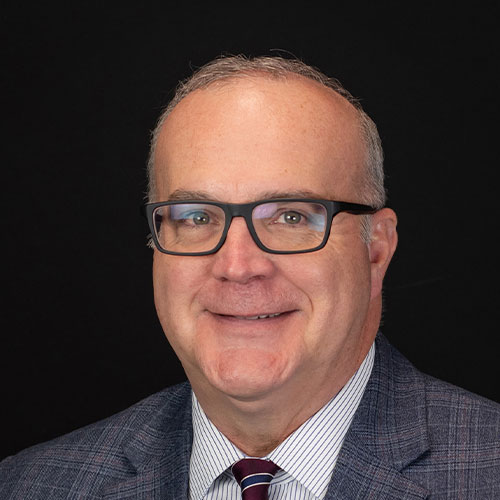“The voice of thy brother’s blood crieth unto me from the ground.”
Genesis 4:10
The statement to which our attention is directed today comes from the story of the first murder on planet earth. After their expulsion from the Garden of Eden, Adam and Eve were blessed with two sons, Cain and Abel. “Abel was a keeper of sheep, but Cain was a tiller of the ground” (Genesis 4:2). We can gather by inference that Adam must have taught his sons about the worship of God. He surely explained to them that because of sin, in order to approach God, a blood sacrifice was necessary.
In the process of time, these two young men came to worship God. While Abel heeded the command of God communicated through his father Adam, Cain had a better plan. Abel offered a firstling of his flock, but Cain brought an offering of the fruit of the ground.
We know the story of how God accepted Abel’s offering, but God rejected Cain’s offering because it deviated from God’s divine command. In a fit of rage, Cain slew his brother Abel, committing the first murder in human history. When the Lord inquired of Cain concerning his brother, Cain replied, “Am I my brother’s keeper?” (Genesis 4:9). In response, we hear God sound forth this ringing statement of condemnation, which is the subject of our attention, “The voice of thy brother’s blood crieth unto me from the ground” (Genesis 4:10).
Of what did Abel’s blood cry out? I believe that it cried out of guilt. Cain was guilty of the sin of murder, and Abel’s blood witnessed to that fact. I believe that Abel’s blood brought an indictment. It lodged a formal charge against Cain for the crime he had committed. Abel’s blood spoke of a death caused by the hatred of his brother. As the blood of Abel seeped into the stained soil, it marked with indelible ink the fact that an innocent life had been taken. I believe the blood of Abel demanded vengeance. It spoke of an account that needed to be settled. This blood of Abel expected a payment, something must be done concerning this horrible crime.
But could I remind each of us today, that like Cain, we all have bloody hands. We are guilty of an innumerable host of offences against God. While we may have never actually committed murder, we face the same penalty, for “the soul that sinneth, it shall die” (Ezekiel 18:20). Again, we are reminded that “the wages of sin is death” (Romans 6:23); and the blood of our sin cries out against us today. Like Pilate, we may try to wash our hands of that which stains them, but our self-efforts will be in vain.
But when we turn the page to the New Testament, we find that there is another blood that speaks. The writer of Hebrews reminds of “Jesus the mediator of the new covenant, and the blood of sprinkling, that speaketh better things than that of Abel” (Hebrews 12:24). This is the blood of Christ “who through the eternal Spirit offered himself without spot to God” (Hebrews 9:14).
In Genesis, the blood of an innocent shepherd, put to death by a guilty sinner cries out; but in the Gospel, the blood of an innocent Shepherd put to death for guilty sinners cries out!
While the blood of Abel cried out of guilt, the blood of Christ cries out of grace. As William Newell wrote,
Oh, the love that drew salvation’s plan!
Oh, the grace that brought it down to man![1]
The blood of Abel brought an indictment, but the blood of Christ brings an invitation. “And the Spirit and the bride say, Come. And let him that heareth say, Come. And let him that is athirst come. And whosoever will, let him take the water of life freely” (Revelation 22:17). The blood of Abel spoke of a death that had been caused, but the blood of Christ speaks of a deliverance that has been secured!
Would you be free from the burden of sin?
There’s power in the blood, Power in the blood;
Would you o’er evil a victory win?
There’s wonderful power in the blood.[2]
The blood of Abel demanded vengeance, but the blood of Christ declares victory. While the blood of Abel expected a payment, the blood of Christ extends a pardon. I’m thankful for the blood which speaketh better things than that of Abel’s!
Oh! Now I see the crimson wave, The fountain deep and wide;
Jesus, my Lord, mighty to save, points to His wounded side.
I see the new creation rise; I hear the speaking blood;
It speaks! Polluted nature dies! Sinks ‘neath the cleansing flood.
The cleansing stream, I see, I see! I plunge, and oh, it cleanseth me!
Oh! Praise the Lord, it cleanseth me, It cleanseth me, yes, cleanseth me![3]
[1] William R. Newell, “At Calvary” in All-American Church Hymnal, (Nashville: John T. Benson Publishing Co.), p. 67.
[2] Lewis E. Jones, “There Is Power in the Blood” in Songs & Hymns of Revival, (Santa Clara: North Valley Publications, 1999), p. 50.
[3] Phoebe Palmer, “The Cleansing Wave” in Soul Stirring Songs and Hymns, (Murfreesboro: Sword of the Lord Publishers, 1989), p. 237.
Share this post

Craig Burcham, GSBC Faculty
Bro. Burcham served as the Chairman of the Bible Department at Golden State Baptist College before answering the call to pastor the Mountain Vista Baptist Church in Sierra Vista, AZ. Pastor Burcham travels each week to teach the next generation at GSBC. Before coming to GSBC, he served as a missionary with his family in Japan for several years and then pastored in Missouri.


Stay connected